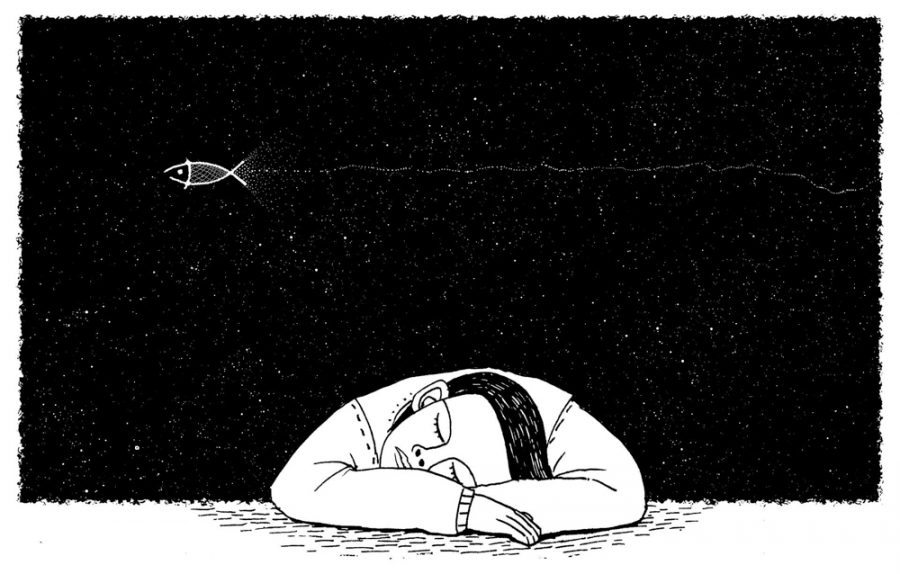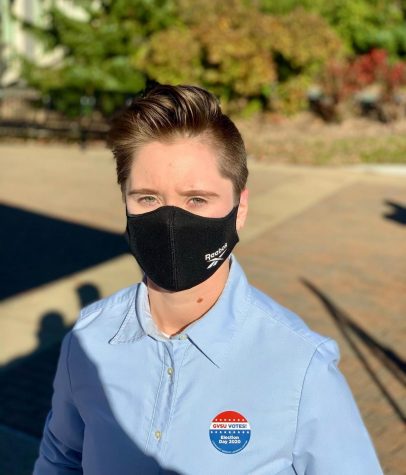GV ‘Press Pause’ March campaign highlights importance of sleep
Mar 1, 2021
For the month of March, Grand Valley State University’s recreation and wellness Press Pause campaign has chosen to focus on sleep, and how a restful night can improve the success of students in higher education. The initiative focuses on a different staple of mental or physical health each month to encourage students to prioritize taking care of themselves during their education.
According to Ryleigh Emelander, Health Promotion Assistant and Press Pause coordinator, sleep is a vital part of student wellness and often students forget that making enough time to rest and sleep on a daily and nightly basis will benefit them.
“Students often prioritize school over sleep; and in general, people tend to think that the “typical” college student’s life is supposed to involve all-nighters while studying for big tests,” Emelander said. “We want students to know that it’s actually better to get a good night’s sleep; it’ll improve your memory and concentration, and it has been linked to better grades. Plus, there are a ton of other benefits.”
National Sleep Awareness Week is March 14-20, 2021 and World Sleep Day is March 19, 2021. For college students, the causes of sleep deprivation can be many and varied for college students. According to Katie Jourdan, Student Health Promotions Coordinator, common causes of sleep loss in college students could include the stress of adjusting to college life, disturbances in nightly routines particularly if living with other students, alcohol and caffeine consumption, academic stresses like meeting deadlines and studying, new social demands, and underlying sleep disorders like anxiety which may be undiagnosed, or chronic sleep loss due to other psychological disorders.
Stella Sterling, WIT Peer Educator at GVSU, said that not getting enough sleep can not only impact your academic success but could have impacts on your physical health. According to the campaign’s research, adults should try to get 7-9 hours of sleep each night. The average college student gets about 6-6.9 hours of sleep each night.
“The negative effects of getting too little sleep are many,” Sterling said. “Physically, you are at risk of weakened immunity, weight gain, and heart-related problems such as high blood pressure and stroke. Maybe not so obvious, poor sleep is strongly linked to many mental disorders and it can impair your abilities to make decisions, cope with stress or change, and control emotions.”
There are many ways to improve the amount and quality of sleep you get with simple everyday changes to routine like being sure your environment is good for sleeping like a quiet, dark room, and to avoid using electronics, and consuming caffeine, alcohol, or other beverages before bed. According to the National Sleep Foundation, electronic back-lit devices like cell phones, tablets, readers, and computers emit short-wavelength enriched light, also known as blue light, which has been shown to reduce the natural production of melatonin in the evening and decrease feelings of sleepiness. Blue light can also reduce the amount of time you spend in slow-wave and rapid-eye-movement (REM) sleep, two stages of the sleep cycle that are vital for cognitive functioning.
The Press Pause campaign has focused on several other health and wellness areas like technology use, self-care tips, and rest. The campaign’s goal is to highlight areas of wellness that are often overlooked by college students, helping them find ways to incorporate healthy habits into their everyday lives.
Ryleigh Emelander said that the campaign’s focus is encouraging students to remember to take breaks from their rigorous academic lives to make time for self-care and health. She said that following along with their monthly blog that includes tips for improving sleep and other wellness tips. This month’s blog focuses on “How Sleep Can Mess You Up.”
“The Press Pause campaign helps students’ well-being because it brings awareness to the importance of taking breaks – whether it’s resting, unplugging, sleeping, or finding the balance to avoid burnout,” Emelander said. “Taking breaks is so beneficial to your health and wellness, yet it’s something that our society doesn’t acknowledge as much as it should. Generally, the U.S. is known for how much we prioritize working and the “grind” culture. We hope that students can learn that taking breaks is actually productive and good for you.”
To learn more about the campaign and get more info on their monthly topics and tips on health and wellness, visit their blog and website to follow along.

























